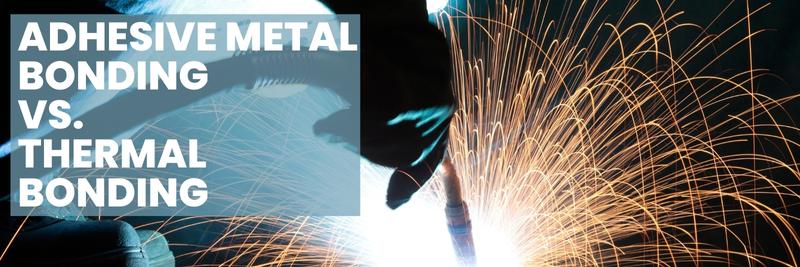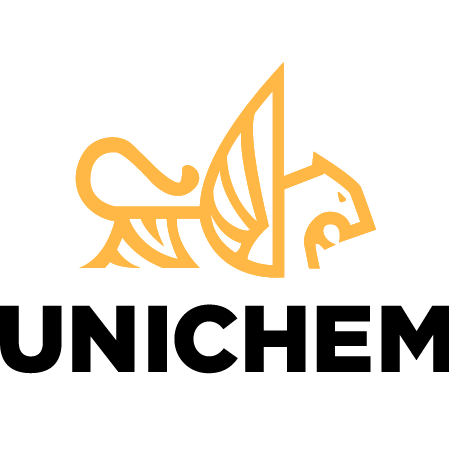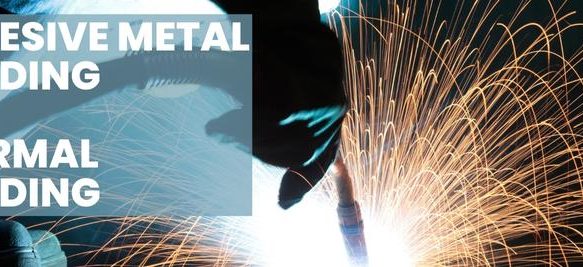
Bonding metals is a common process for a wide variety of industries and applications, with different metal products and different bonding methods used in automotive, construction, aerospace, and many other applications. The way companies connect and process metal materials has a direct impact on product quality and process efficiency.
Some companies use mechanical bonding with metal fasteners, and some product designs call for thermal bonding which includes welding, soldering, and brazing. Bonding metal substrates with industrial adhesives is another method that can be used in many applications on its own or in conjunction with other bonding methods.
Thermal Bonding Versus Adhesive Bonding for Metal
Thermal bonding of metal substrates has been performed since metalworking began and is accepted as a quick and typically inexpensive method of bonding metals. Welding is fast and requires no cure time with metal substrates exhibiting a good bond and sealing immediately upon completion of welding when done properly.
There are some cases where industrial adhesive bonding provides advantages over thermal bonding, with those benefits including:
- Improved appearance-when aesthetics is important, sometimes welding does not leave the best appearance.
Welding can discolor or distort metal appearance at the bonding point. - Allows bonding dissimilar metals-it is possible to weld dissimilar materials although many factors must be considered such as the melting point of each metal type, the coefficient of thermal expansion, the solubility of each metal, and the electromechanical difference. In some cases, adhesive bonding for dissimilar metals is the best choice, providing a long-lasting adhesive bond that is compatible with both metal types or when bonding metal to different types of substrates.
- Lower energy costs – welding can be fast and effective although it requires an energy-intensive process. Using adhesives can be less energy-intensive than welding.
- Reduced labor costs – bonding metals with welding requires intensive labor and a trained workforce with expertise in welding to achieve a quality bond. Many automated processes such as coil coating adhesives for metal bonding applications eliminate labor altogether and provide improved product quality.
- Allows for the use of thinner materials – using an adhesive instead of thermal bonding allows for the use of thinner substrates which can provide even greater strength than thicker counterparts when bonded correctly with the right adhesive.
- Improved worker comfort – thermal bonding processes can produce a lot of heat and energy. Adhesive bonding can be performed in a temperature-controlled atmosphere.
Considerations When Bonding Metal
There are many factors to consider when evaluating the best method of bonding metal in your application. The product function and whether rigid or flexible adhesives are required, the effect of stress concentration, the level of corrosion resistance required, and thermal exposure all come into play when considering the best method to bond metal.
Rigid or Flexible Adhesive Requirements
Some products require efficient energy transmission such as swinging a golf club shaft and expecting sufficient energy exertion from the club head. This can be achieved with rigid adhesives versus flexible adhesives which dissipate energy such as vibrations in railcars or transportation equipment.
Stress Concentration
The effect of stress concentration must be considered and how drilling holes into substrates will create added stress at that junction vs. distributed stress when bonding metal with industrial adhesives.
Corrosion Resistance
The risk of corrosion is always a big concern when working with metals, and the environment and exposure to corrosive elements should always be a consideration. Corrosion occurs through rusting or pitting and can create material failure and cosmetic product degradation. Industrial adhesives for metal bonding provide added protection against corrosion.
Thermal Exposure
Different materials experience stress, expansion, or failure at various temperatures whether exposed to extreme heat or cold. Products composed of different materials which deteriorate at different levels of thermal exposure can cause significant damage to structures. Industrial adhesives can absorb some of this difference in stress and provide added protection in structures when bonding metal, or metal to nonmetal substrates such as plastic, wood, or glass.
UNICHEM Offers Industrial Adhesive Technologies
Universal Chemicals & Coatings, Inc., UNICHEM, offers industrial adhesive technologies proven when bonding metal to metal and other substrates. uniBOND industrial adhesive offers long-lasting, high-performance bonding solutions utilized in a variety of industries and applications such as construction, automobile, and transportation equipment and provides efficient adhesive application through coil coating processes.
UNICHEM is a leading custom coating and adhesive supplier offering more than 50 years of experience. We provide custom formulations to meet your exact process and product demands. Contact us to learn more about bonding metal with adhesives and improve your process efficiencies and product quality with uniBOND industrial adhesive.


